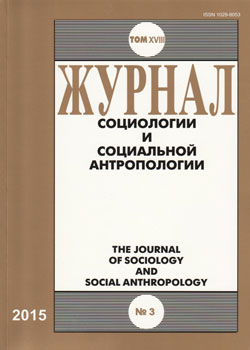The Dynamics of Sexual Liberalization in Modern Russia: the Generational Analysis
Keywords:
modernization, liberalization, sexual values, generational differences, cohort analysis
Abstract
A society’s commitment to gender equality and sexual liberalization proves time and again to be the most reliable indicator of how strongly that society supports principles of tolerance and egalitarianism. But how can citizens, socialized by authoritarian regimes in quintessentially authoritarian cultures, in societies, where sexual freedom was persecuted and even one is prohibited by law, learn to be loyal to these phenomena and gain sexual liberalization values? Two theories dominate: cultural theories of learning emphasize the importance of early life socialization. Individuals in authoritarian societies are taught, virtually from birth, to embrace attitudes, values of society. Institutional theories, by contrast, emphasize adult experiences or “relearning” based on individuals’ rational assessments of “the net present value” of contemporary institutions and circumstances. Researchers who held cultural theories anticipated that it would take decades or longer to adopt values of sexual liberalization in Russia. Institutional theories held that Russians would rapidly adapt to the social norms of sexual liberalization. This research tests these competing perspectives using data of forth waves of WVS (1990, 1999, 2005, 2011) and Age-Period-Cohort analysis.
Published
2015-05-20
How to Cite
Zelikova, J. (2015). The Dynamics of Sexual Liberalization in Modern Russia: the Generational Analysis . ZHURNAL SOTSIOLOGII I SOTSIALNOY ANTROPOLOGII (The Journal of Sociology and Social Anthropology), 18(3), 96–109. Retrieved from http://jourssa.ru/jourssa/article/view/401
Section
Sociology of Sexuality

